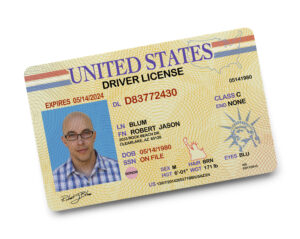
The majority of adults in Minnesota drive on a regular if not a daily basis, so losing this privilege because of a DUI arrest can really throw your life out of whack. And unlike some penalties, license limitations can be enforced even before you are actually convicted of a crime, so your life can change in a hurry after a DUI arrest. However, if you know what you’re doing, you can take some steps to help improve your likelihood of retaining your driver’s license after an arrest. We explain what steps you should take in today’s blog.
Steps To Take To Keep Your License After A DWI
Let’s start at the beginning and work our way out from there. In Minnesota, your license is revoked for a period of seven days from the date of your arrest. That means even if the charges are pending and you’re released on bail the same day, your driver’s license will be revoked for a week. It’s also important to note that this revocation will be extended to 90 days as a standard operating procedure for most DUI cases, but you have options after this initial seven day period where you can regain your driving privileges as is or with certain conditions.
First, you’ll need to ask for a judicial review of your revocation. You have 60 days to file for this petition from the date of your arrest, otherwise it will not be considered. If your request for judicial review is granted, they will give you a date for your review. In this time between your petition and the review, you can file a request with the county or the appropriate party to allow your license to be considered valid until your review can be heard. If you are granted this allowance, you can continue driving like normal until the judicial review.
Next, develop the strongest case possible and get ready for your judicial review. During this hearing, the judge will hear and review evidence about your license revocation. This is different from your criminal trial. If the judge agrees with your arguments, your license will be reinstated and it will remain reinstated so long as you are not convicted of DUI in criminal court. The revocation will also remain off of your criminal record so long as you are not convicted in criminal court.
If you’ve succeeded up to here, you have options. You’re currently allowed to drive with your normal license, but again, that criminal case is hanging over your head and can again lead to a revocation. Now, you can try to win your criminal case outright, or you can consider pleading out to lesser charges that could allow you to retain your driving privileges. The prosecution may allow you to accept a plea to a Reckless Driving charge instead of seeing how the DUI case plays out, but you’ll want to do your research and ask about your driver’s license before agreeing to any deal.
Finally, if you end up getting convicted of DUI in criminal court, you may still be able to drive by applying for a Limited License, which allows you to drive to certain places like work or church even after the DUI. Another option is an ignition interlock system, which may allow you to drive like normal once the system is in place.
The easiest way to accomplish all of the above, from filing the petition for review to winning your argument in court is with a lawyer by your side. Avery and the team at Appelman Law Firm have done this for countless clients in the past, and they can do the same for you. For more information, or to set up your free strategy session, give their office a call today at (952) 224-2277.





